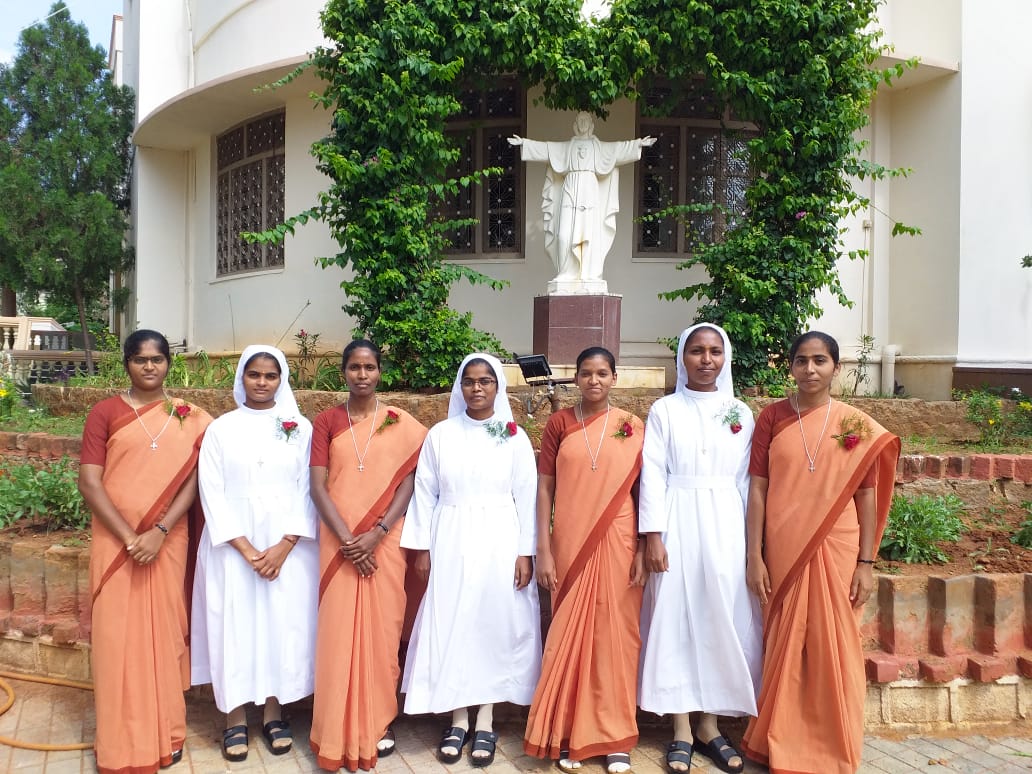Formation
Formation
J.M.J formation is person oriented, contextualized and integral. Formation is a process of growing into the likeness of Christ. The primary end of formation is to initiate the Fomee to God’s unique call, in the specific charism, Spirituality, Ministry and Mission of our congregation. Formation of us and the new members of our society is a continuous process of updating and adapting to the challenging situations and needs and putting on the mind of Christ. In other words, the final objective of Consecrated life is not just any ideal of perfection, nor is it a specific operational availability of the individual or the group, but it is the formation in the heart of the consecrated person, to have the “sentiments of the Son”.
Fomees respond to God’s call in tune with the Charism of society. The formee is initiated to discern, discover and respond to God’s unique call in the specific Charism, Spirituality ‘ministry and mission of our Congregation. This identity is necessary not only for the maturity of the members in order to live and work in conformity with the foundational Charism, but also for the identity and unity of the institute. Formation of the young is a matter of greatest importance to the Congregation. The thrust of formation must enable them to grow in freedom, so that vocational values and ideals are internalized and personalized. Thus the formees are led to a deep inner freedom of heart. Formation must facilitate personal growth and self-awareness and conscious motivation for ongoing conversion, so that they can gradually acquire a mature sense of out look to form themselves in freedom with responsibility.
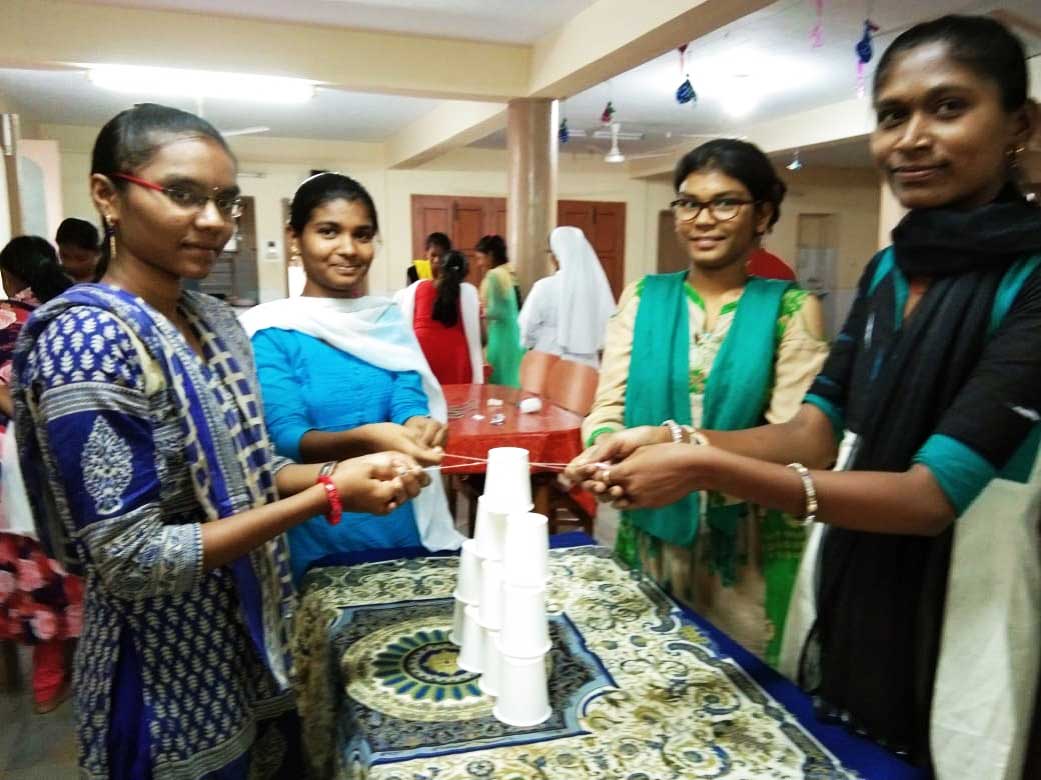
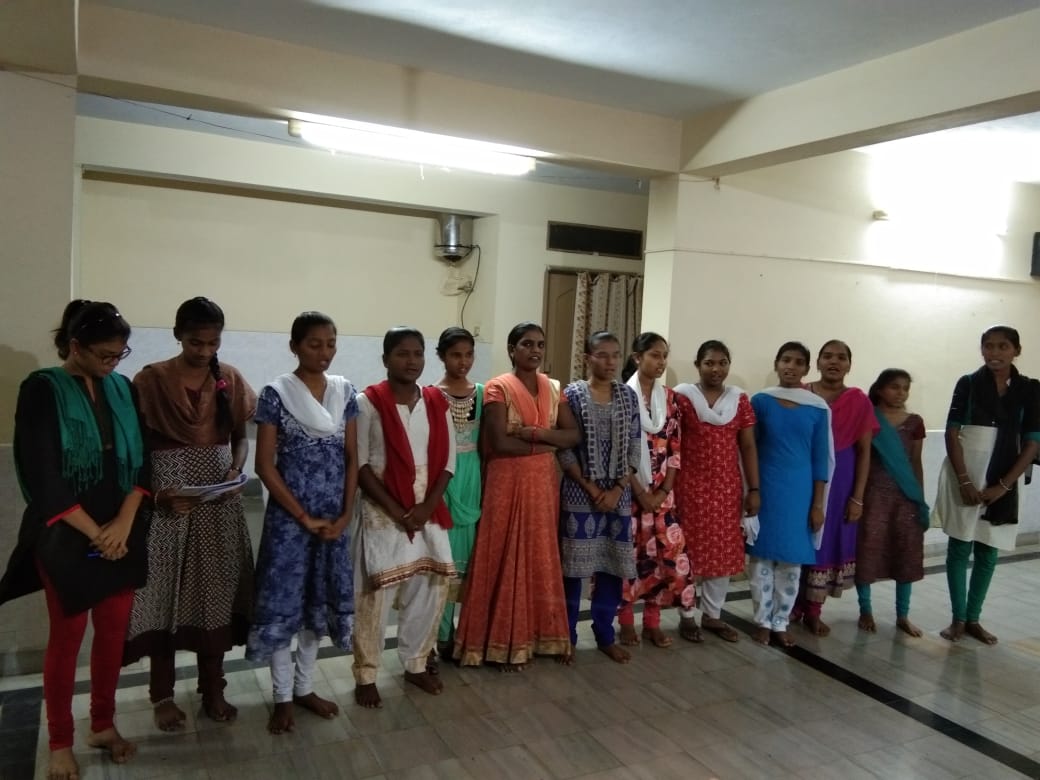
Stages of Formation Pre-Postulancy
The Congregation must create a climate for our young persons where they can live together with other members of the congregation. The new members bring freshness of life and new ideas, but it has to be developed in the spirit of our charism.At the same time, the Congregation must take note of the marvels and innate goodness of each Former, to flourish and reach the highest development and growth for the good of the individual, the Society and the world at large.
The candidate (pre-postulant) must be open to the guidance given in order that she may form herself. It is necessary to introduce them to our apostolic life by way of explaining and partly involving them and witnessing the apostolic work carried out in our communities.
The specific vocation and character of our Congregation, namely ‘An ever Adaptable Apostolic Availability’ should appeal to them.
Postulancy
When a person feels drawn to experience the life and ministry of the J.M.J Congregation, She makes it known to the Provincial Superior. After a proper dialogue with the Former, she is accepted to the Congregation officially by handing over the Medal of our Holy patrons, Jesus Mary and Joseph. She makes 5 days retreat prior to her entrance to Postulancy.
The period of Postulancy generally lasts for one year. The proivincial Superior, with the consent of her Council may extentthe time for another six months, for good reasons.
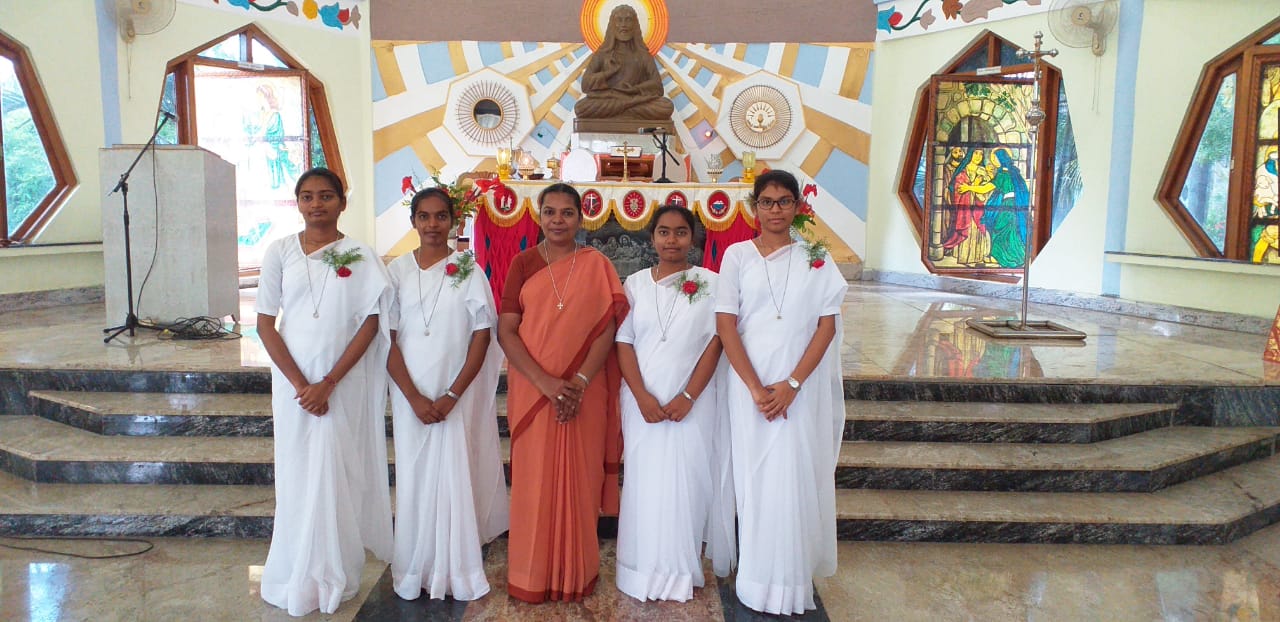
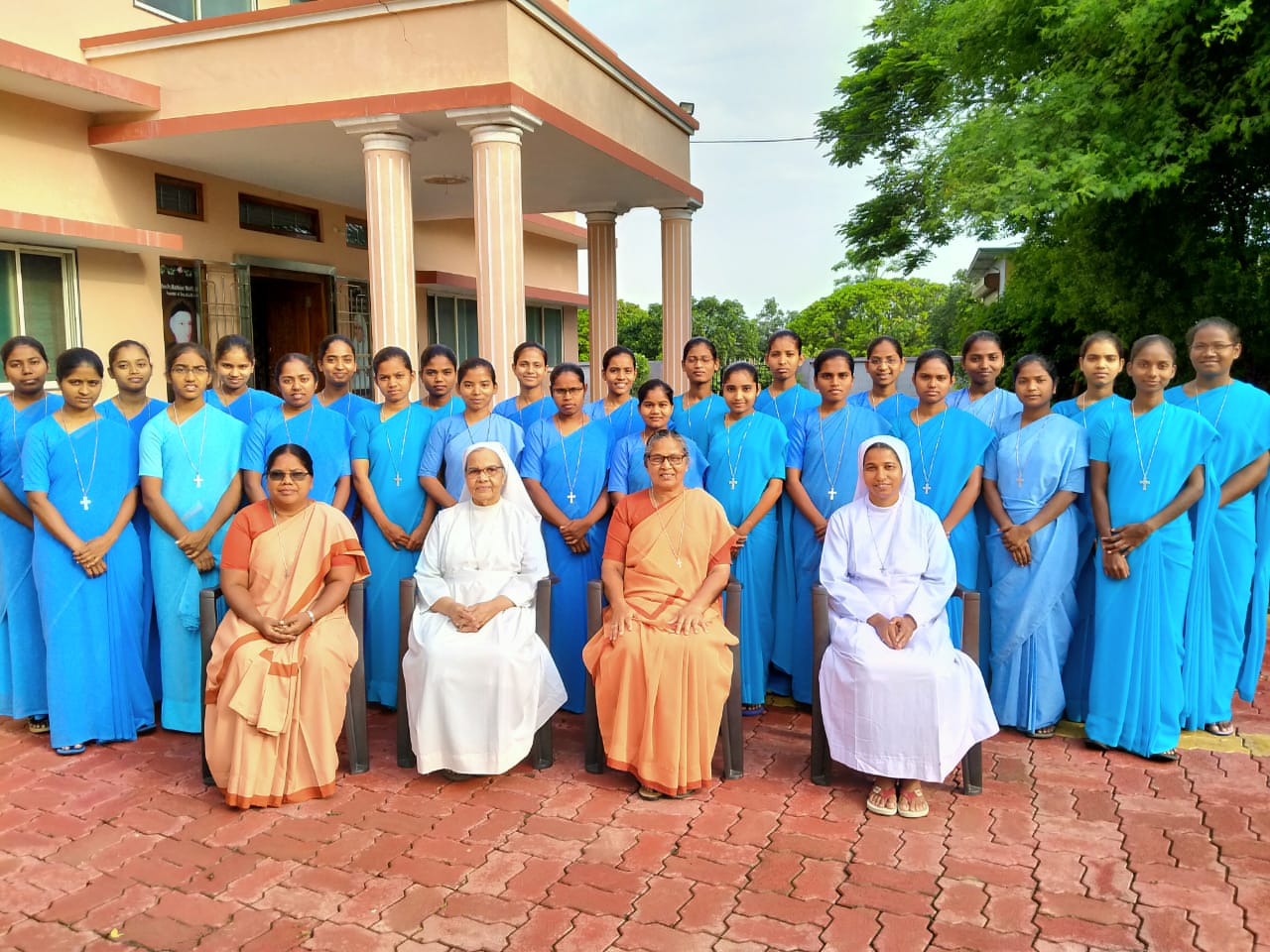
Novitiate
After having lived the period of Postulancy for one year, and has attained the required human and Christian maturity, the Postulant may make known her wish in writing to the Provincial Superior.
The Provincial Superior, after a proper dialogue with the Postulant and in consultation with her council, admits the postulant to the Novitiate. The postulant makes a retreat of 8 days prior to her entrance to Novitiate. Novitiate is the beginning of the life in the Congregation and is a time of intensive formation. During the Novitiate the novice tests herself , finding out whether the life chosen by her, as defined in the Constitutions, inspires her and affords her the opportunity of realizing her ideals. She must seriously try to find her place in the Congregation. Novice on her side puts herself open to our Charism and to the guidance given. Ultimately it is she herself bears the responsibility of her formation. The young novice decides to grow into a mature person, who can launch out with freedom and responsibility in the service to the kingdom.
A novice, who has the genuine vocation to the religious life, will have strong faith, love for prayer, readiness to sacrifice, call to service and a life of communication & Commitment.
The Novitiate lasts for two years
The Novitiate lasts for two years. This period covers the canonical year. The Provincial Superior with the consent of her council may, extend the time of novitiate for a good reason, but not more than 6 months. Besides the programme given during the first year, the second year is concentrated on apostolic formation and Consecration of the novice to Lord. The Lord is the foundation and ultimate aim of a novice.
After the first profession made at the close of the noviciate, there is a period of six to nine years, before the final commitment when sisters are placed in different communities either engaged in one or the other apostolate or in furthering their professional training.
Formation is an ongoing process. This demands that spiritual knowledge be constantly kept up; thus the personal spiritual development of the sisters promotes our apostolic endeavor an indispensable requirement for all forms of apostolate in being well informed about and keeping abreast of contemporary thinking. Each sister takes up the responsibility to grow spiritually and integrate the various aspects of her life. Involved in the realities of the world today and inspired by the unique role played by our holy patrons – Jesus Mary and Joseph, in the plan of salvation, we are called to grow in living our consecrated life, day by day, with deep commitment and conviction.
The Congregation offers ample opportunities at every stage through seminars, courses, meetings, interactions etc; to learn, to be enlightened and transformed.
After the first profession made at the close of the noviciate, there is a period of six to nine years, before the final commitment when sisters are placed in different communities either engaged in one or the other apostolate or in furthering their professional training.
Formation is an ongoing process. This demands that spiritual knowledge be constantly kept up; thus the personal spiritual development of the sisters promotes our apostolic endeavour an indispensable requirement for all forms of apostolate is being well informed about and keeping abreast of contemporary thinking. Each sister takes up the responsibility to grow spiritually and integrate the various aspects of her life. Involved in the realities of the world today and inspired by the unique role played by our holy patrons – Jesus Mary and Joseph, in the plan of salvation, we are called to grow in living our consecrated life, day by day, with deep commitment and conviction.
The Congregation offers ample opportunities at every stage through seminars, courses, meetings, interactions etc; to learn, to be enlightened and transformed.
